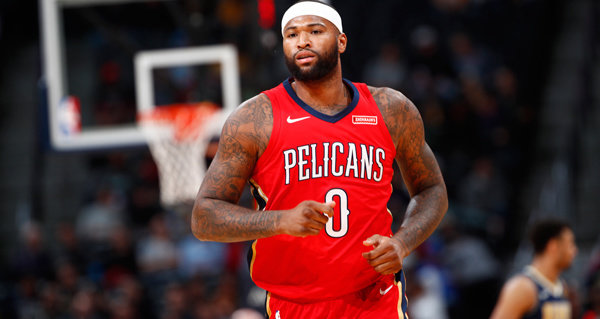There’s all this noise. Fans speculating on Twitter, pundits theorizing on TV and podcasts, bloggers a-blogging, journalists checking in with their sources and reporting back on what they hear. It seems, if you give yourself over to this swirl of information—some of it good, some of it bad, most of it difficult to classify one way or another—that a huge and sudden event is occurring. Like LeBron James is joining the Lakers, and he’s inventing teleportation to get to Los Angeles. In reality, even players who are on the move are right now decompressing, taking their workout regimens down a couple notches, spending time with friends and family, participating in low-key sponsor events. Amid all this, they’re fielding texts from their agents, who are making calls to teams, who are scribbling salary figures on whiteboards. It’s not—without you and I and Woj making a big deal about it—an enrapturing process by itself, even if its end product is significant.
So there’s all this noise, and then there’s a silent thing: the mental processes of players deciding where they want to sign this summer. Seemingly everybody has a squad—advisors, close buddies, tyrannical uncles—but in the end, one person makes the call. They’re persuaded by their associates or have their own ideas about what they want to accomplish. They’re going to take the money; they want to compete for a title; living in Miami sounds appealing. This is small and personal and also trumpeted across the internet in 24-point font. It’s not, as some posit, simply a worker swapping one employer for another, or staying put, but it is technically that—plus a bunch of other strangeness. It must be, among other things, a disorienting experience.
Perhaps particularly so for DeMarcus Cousins, for whom the whole free agency dance was going to be brief and simple as recently as mid-January, before he tore his Achilles. The twin towers experiment with Anthony Davis wasn’t working perfectly—the Pelicans were in sixth place in the Western Conference before Boogie got hurt—but he was putting up prodigious numbers and was, following the torridly depressing first chapter of his career in Sacramento, pretty content in a deep-south city not far from his hometown in Alabama, on a team that was performing reasonably well. He looked set to stay with the Pelicans for a long while, on a max contract.
Of course that’s been complicated by the fact that Boogie is a 6-foot-11, 270-pound man healing a severe lower body injury that has shortened or dampened the careers of just about every basketball player who’s ever suffered one. We don’t have a lot of data points, over the course of NBA history, regarding Achilles tears, but it has typically preceded some severe or moderate decline. Cousins’s closest analogue is Elton Brand, the similarly stocky forward who picked up his Achilles injury at 28 years old. It took him two full seasons to completely recover, and at age thirty, he was merely a useful player for the Sixers, scoring 13.2 points and nabbing 7.2 rebounds per game over three years in Philadelphia—well off the 20-and-10 benchmark he set in his prime.
Given the uncertainty surrounding when Boogie will return from his Achilles tear, how long it will take for him to get back to full strength, and whether or not he’ll ever again play as well as he did last season, the market for his services is amorphous. There are surely interested teams—the Pelicans being frontrunners, the Mavericks rumored to be sniffing around, and the Lakers a hypothetical fit—but it remains to be seen what price they would pay to lock up a player who could be one of the best centers in the league, once he literally and figuratively gets his legs back under him, or could be on the verge of a terrific decline.
What you pay to find out which thing is true is up to front office folks, who are doubtless doing the math. In the meantime, Boogie is rehabbing, posting to social media dopey-inspirational hype videos of his workouts which are, if the intense editing and liberal filter use are any indication, considerably less interesting to look at than he and his social media team believe them to be. This is really all he can control: rebuild muscle as quickly as possible, run miles in a pool and shoot no-lift jumpers until he feels well enough to try a spin move or two. This is more arduous and miserable than most players’ offseason routines, but it is only that. In between workouts, Boogie probably checks his phone, sees if there’s any good news on the job offer front.
This is what we’re so exercised about, fascinated with. It’s not that the stakes aren’t extant and tall—especially if you’re a Pelicans fan, especially if you’ve become invested in Boogie Cousins’s career—but the action isn’t all that active. At this stage of free agency (unofficial, but in at least partial swing), people are talking to people about scheduling meetings, hurrying up to wait, weighing the abstract. And Boogie is in a gym or a workout facility, knowing that he’s going to make a big decision in the coming week or two but unaware of what it will be and the precise reasons for it. This is a quiet time, despite the noise that argues insistently otherwise. It’s quiet until it truly gets loud—and we’ll hear that noise whether we’re listening for it or not.



